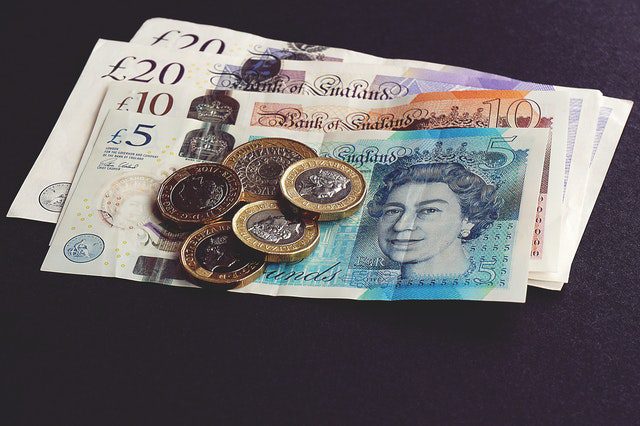Following the UK’s inflation rate hike of 5.5% in January, the purchasing power of household savings is starting to diminish. In fact, data from the Bank of England shows that savers currently have almost £7.1 trillion locked away in their bank accounts, meaning that inflation is set to wipe at least £390 billion in savings over the next 12 months.*
Coupled with rising interest rates, this means that UK households must brace for a significant hike to the cost of living within the country. As households continue to be stretched, now is the perfect time for savers across the UK to consider alternative ways of securing their wealth.
Kinesis Money provides guidance on how gold investment can support households across the UK navigating the cost-of-living crisis, both immediately and in the long-term:
1. Rethink cash
Cash is now more vulnerable than ever to depreciation. In June 2020 alone, the US printed more money than in the first two centuries after the country’s founding, as a fiscal response to the pandemic.
On the other hand, finite assets such as cryptocurrencies, real estate, and precious metals, are more able to withstand inflationary pressures.
With any portfolio, diversification is the key to securing wealth and mitigating risk across a variety of asset classes.
2. Forget savings accounts
For those wanting to boost their long-term savings, stashing your wealth in a savings account that delivers less than 1% interest may not be the best option. Many are still unaware of the extent to which inflation will impact the purchasing power of their money.
Put simply, as the rate of inflation continues to rise, the spending power and value of currency falls. Households should rethink where and how their money is stored, with a current economic model that no longer serves the masses.
3. Consider the stock market
Those looking for their savings to keep pace with inflation must seriously consider their approach.
Taking advantage of capital yielding assets such as stocks and bonds can enable households to earn revenue in a low – or even negative – yielding environment. Of course, as the cost of living rises, this presents the challenge of finding surplus cash to invest in the long term, while balancing short-term monetary commitments.
With that said, the stock market provides great opportunities for generating revenue but provides less for the end-goal of protecting wealth.
4. Stability in gold
If households are really looking for their wealth to keep pace with inflation, they should consider storing it in gold. The historical stability and positive performance in its market price, position it as the optimal haven during times of high inflation.
Over the past decade, the digitalisation of gold has meant that households can now easily make everyday transactions with gold-backed digital currencies.
Therefore, UK citizens can protect their wealth from depreciation, while also spending gold as if it were any other currency. Households can now utilise the full benefit of gold investment to purchase their morning coffee, in addition to putting money behind their child’s schooling or a gold-backed retirement fund.
Jai Bifulco, Chief Commercial Officer of Kinesis Money, says: Inflation has spiralled over the last six months, first the Bank of England said it would peak at 3%, yet last month it soared past 5%. While interest rates continue to climb after months of monetary expansion policies, this begs the question: how far will inflation rise?
Whatever the answer, consumers need to consider safe-haven assets in order to protect their wealth and ride out the storm – particularly as the majority of people’s savings are sitting in a low-interest current account. Gold has always been the safe-haven asset of choice for most investors, but now any saver can put their money in gold and use it as a currency with utility, accessibility, and the ability to earn a yield. It’s time to rethink our relationship with gold.
Gold is the universal constant and, relative to weakening fiat currencies, it will do what it always has done as a stable and enduring store of value: hedge against inflation and currency devaluation.
Help keep news FREE for our readers
Supporting your local community newspaper/online news outlet is crucial now more than ever. If you believe in independent journalism, then consider making a valuable contribution by making a one-time or monthly donation. We operate in rural areas where providing unbiased news can be challenging. Read More About Supporting The West Wales Chronicle
























